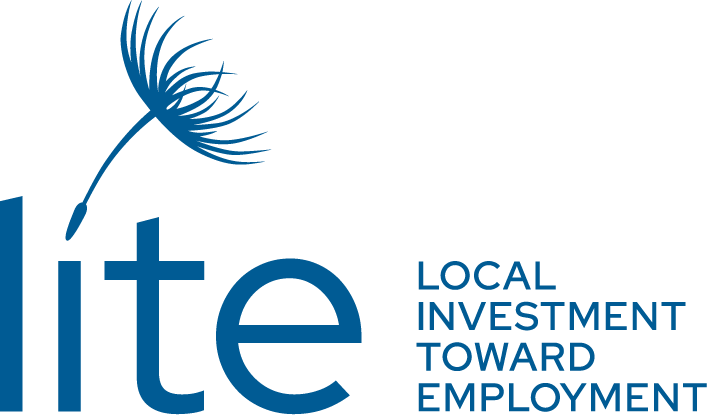
Fireweed Food Co-op is a non-profit cooperative involved in supporting smaller local food producers and making their products more accessible to a wider customer base. Without Fireweed, many people wouldn’t have access to healthy and high-quality food. This makes them a valuable part of the Winnipeg community, and one that truly embodies the values of food justice and accessible food for all.
Last week, we had the pleasure of talking with Laura Pelser, the communications coordinator at Fireweed Food Co-op. In this interview, we talk about some of their programs like their food hub, the South Osborne Farmers’ Market, and their work in food security. We also discuss our partnership with them on the Spirit of Community water bottles, as well as touching upon some of the challenges that they as an organization face, as well as how you can help.
The full transcript of this interview is below.
Laura: Hi, I’m Laura Pelser. I’m the Communications Coordinator at Fireweed.
LITE: And what does Fireweed do?
Laura: Fireweed, the goal of Fireweed Food Co-op is to get local food, more local, sustainably produced food into the food system. And we do that through three sorts of streams or projects. We have the South Osborne Farmers market that we’ve been running since 2016, Fireweed Food Hub that’s been around since 2020, and our food security projects that we’ve been doing sort of throughout since the market started.
So the goal with the market was always to be able to start a food hub. And with the market, we form relationships with local producers, and also build up a bit of capital to get the food hub off the ground. And in 2020, we received a grant to start the food hub. And it started as a pilot project. Food hubs are an economic model that have been around for a long time, there’s many throughout Canada in the US. And the goal of the food hub is to provide connections between local producers and consumers.
With the food hub, we work with wholesale customers. So that would be restaurants, retailers, institutions. And the goal there is to do sort of all the extra work that farmers have to do to sell their food, but then the food hub does that instead. So that would be aggregation, storage, delivery, and also the sales and marketing. And so all of that work is what supports our food security project. So we have right now we’re just starting the second year of the veggie van. And that’s where we buy food from our producer co-op members. And then we sell it at a subsidized rate. So it’s half for half of the actual cost for maximum free items. And that’s to make local food more accessible. And veggie van goes around into different areas that experience food insecurity to bring more local food into those underserved areas.
LITE: Are there any challenges that fireweed currently faces?
Laura: Yeah, some of the challenges that we face are sort of people not knowing what we do. So I think sometimes, for example, for people that interact with the food hub, like wholesale customers, sometimes we just come across as any other third party supplier, which is not the case, our goal isn’t to like negotiate down the price for the producers for their food, it’s and then make like a big profit. Our goal is to support the producers to get a fair wage for their work and a fair price for their products, and just provide the connections to make selling those products easier in the food system. So I think yeah, our identity is sometimes a challenge, as well as funding. It’s difficult to find funding that will support staffing as well as capital expenses. So a lot of funding comes with a project or research which takes away from our base work of supporting producers. And we’re years away, if ever from becoming completely financially independent of grants. There are some food hubs that have been around for decades that still rely somewhat on grant funding.
LITE: And on funding, the Spirit of community bottles will be supporting fireweed, its will. How will the proceeds from the bottle help fireweed?
Laura: So the proceeds from the water bottle would probably go to our veggie van project. And that’s because any amount of donations or funding for the veggie van goes kind of like double. We use that to purchase food from our local producers. And then we subsidize it at half price or less and sell it from our veggie van or the mobile market that goes around in different areas that experience food insecurity that might not otherwise have affordable access to fresh local fruits and veggies.
LITE: You talked about the veggie van, are there any other programs that you wanted to highlight?
Laura: Yeah, so we’re starting a household sales channel, too. During the peak of the pandemic, we ran a CSA, which was our cooperatively supported agriculture. And so we put together boxes of produce throughout the different seasons from our producer members, and we did home delivery. So customers sign up for like five weeks of our CSA, and we deliver directly to their home. But it’s such a small team, that amount of labor was just not sustainable, we kind of capped it at like 20 people. So we’re starting what we’re gonna call a buying club. So people will be able to go on to our online store and order whatever they want. We’re not putting together like a preset box that people can just pick whatever works for them and their families. And then we are partnering with Lowlife Barrel House and Barn Hammer Brewing, and those will be able to pick up spots. So we’ll get everybody’s orders together, and then they’ll come pick them up. So we’re doing this, partly to help people access local food, and also to meet some of our smaller producers, where they’re at in terms of scale. A lot of sustainable producers are more set up for household sales at this time, then wholesale. So ideally, this will help people sort of scale up over time. But this household sale is a good, good place for a lot of our producers.
LITE: How can people help and support fireweed?
Laura: So we are a co op, we have, we’re multi stakeholder Co Op. So we have members that are producers and members that are consumers of food. And the goal for that is to have our work informed by people from throughout the food system. So everybody from producers to eaters of food, so you can become a co-op member. And we have different levels of membership according to what makes financial sense for people. And once you’re a coop member, you can access our buying club, and you’ll get a member newsletter, which we send out regularly to inform people about what we’re working on and any sort of job opportunities or board opportunities, as well as issues or events related to food justice or even security. We also have volunteer positions available. So the South Osborne Farmers’ Market is run primarily by volunteers as well as our market coordinator. And the veggie van is looking for volunteers to come help work at the veggie van.
LITE: If people want to volunteer, what’s the best way to get involved?
Laura: Through our website would be the best way to get volunteer application forms there.
LITE: Are there any closing thoughts?
Laura: Maybe I’ll talk a little bit about the market because that’s where a lot of bottles will be. Okay, so our market started in 2016, with just five vendors in a warehouse parking lot. And we now have 35 to 40 members weekly. And we see about 500 people come in per week. And it’s been a really important community space, especially when having those gathering spaces during different phases in the pandemic is really important. We also have a few initiatives to increase the accessibility of the market. So we received a grant to build more accessible pathways, as well as signage to make them more easy to navigate. And we also have a Pay It Forward program where people who can afford to do so can purchase tokens for other folks at the market to use to buy food. And we’re working with direct farm Manitoba with their communities and concurrency program. So different community centers will receive funding for their participants to come to the market and produce local food. We have some sustainability initiatives as well. We’re a community compost drop off site for compost Winnipeg and we have a zero plastic bag policy. So with that we have a take a bag leave a bag program so people can bring in reusable bags that they’re not using anymore so other people can take those and continue their use.
To support Fireweed, visit their website at: https://www.fireweedfoodcoop.ca/

